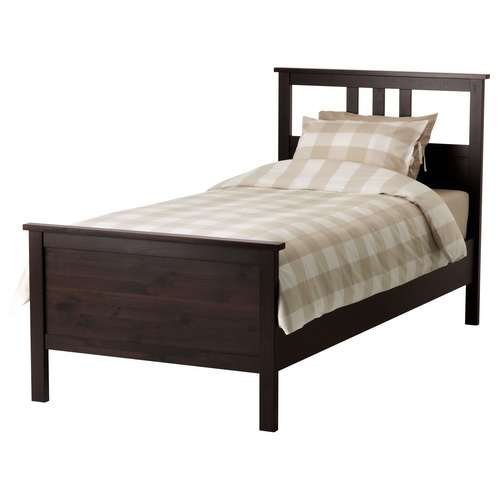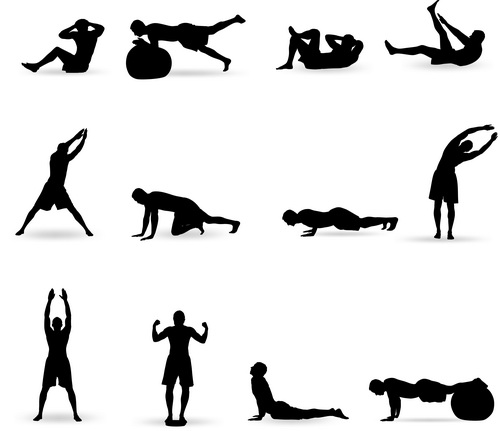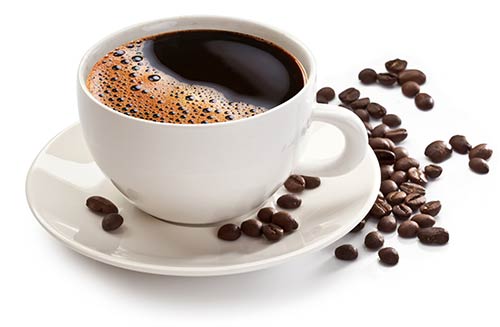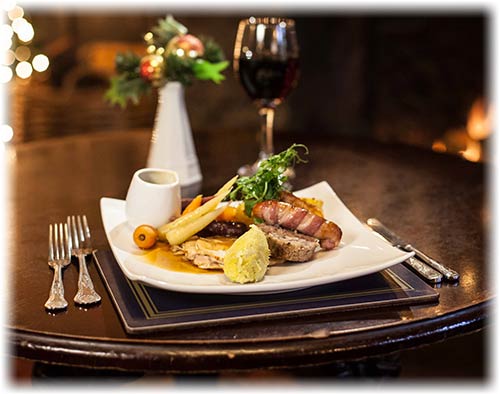bed
I didn't even have the energy to get out of bed.
A piece of furniture that you sleep on

I didn't even have the energy to get out of bed.
Oxford Essential Dictionary
bed
noun
1 a thing that you sleep on:
It was time to go to bed.
The children are in bed.
to make the bed (= to make it ready for somebody to sleep in)
word building
A bed for one person is called a single bed and a bed for two people is called a double bed. Children often sleep in bunk beds, which are two single beds built with one above the other.
2 the bottom of a river or the sea
Longman Dictionary of Contemporary English
BEd
BEd BrE AmE British English, B.Ed. American English /biː ˈed/ noun [countable]
(Bachelor of Education) a first university ↑degree in education
bed
I. bed1 S1 W1 /bed/ BrE AmE noun
[Language: Old English; Origin: bedd]
1. SLEEP [uncountable and countable] a piece of furniture that you sleep on
in bed
Simon lay in bed thinking.
You should go to bed early.
She got into bed and turned out the light.
before bed (=before going to bed)
Dad has a whisky before bed. ⇨ ↑camp bed, ↑four-poster bed, ↑sofa bed
2. SEX [uncountable] informal used to refer to having sex:
I came home and found him in bed with (=having sex with) my best friend.
He wanted me to go to bed with him.
He’s been trying to get his secretary into bed.
She told me he was good in bed (=a skilful lover).
3. RIVER/LAKE/SEA [countable] the flat ground at the bottom of a river, lake, or sea:
the sea bed
4. GARDEN [countable] an area of a garden, park etc that has been prepared for plants to grow in:
rose beds
5. ROCK [countable] a layer of rock ⇨ ↑bedrock(2)
6. LOWEST LAYER [singular] a layer of something that forms a base that other things are put on top of
bed of
prawns on a bed of lettuce
7. IN RIVER/WATER [countable] an area at the edge of a river or in deeper water where things grow:
an oyster bed
The birds build their nests in reed beds along the river bank.
8. get out of bed on the wrong side British English, get up on the wrong side of the bed American English to feel slightly angry or annoyed for no particular reason
9. not a bed of roses not a happy, comfortable, or easy situation:
Life isn’t always a bed of roses, you know.
10. you’ve made your bed and you must lie on it spoken used to say that you must accept the results of your actions, even if they are bad
11. put something to bed technical to complete a newspaper, magazine, or book, so that it is ready to be printed
• • •
COLLOCATIONS
■ verbs
▪ go to bed What time do you go to bed at night?
▪ get into bed/get out of bed I usually read for a bit after I get into bed.
▪ climb into bed Lucy climbed into bed and lay awake thinking.
▪ crawl into bed (=get into bed feeling very tired) We finally crawled into bed at three in the morning.
▪ jump into/out of bed I jumped out of bed and ran over to the window.
▪ get somebody out of bed (=make someone get out of bed) His mother couldn’t get him out of bed in the mornings.
▪ stay in bed (=not get up early/at the usual time) At the weekend it’s really nice to be able to stay in bed.
▪ make the bed (=tidy the sheets and covers after you get up) Don’t forget to make your bed before you go out!
▪ change a bed (=put clean sheets on it) You should change the beds at least once a fortnight.
▪ put somebody to bed (=put a child in their bed) I put the baby to bed at 7 o'clock as usual.
▪ take to your bed written (=go to bed because you feel ill) Guy had a stomach ache and took to his bed.
■ adjectives
▪ a single bed (=for one person) There was only a single bed.
▪ a double bed (=a bed for two people) Would you like a double bed or twin beds?
▪ a king-size bed (=a very big double bed)
▪ a queen-size bed (=a big bed for two people)
▪ twin beds (=two single beds in a room)
▪ bunk beds (=two single beds joined together one above the other) The kids love sleeping in bunk beds.
▪ a spare bed (=a bed for visitors to your home) Come and stay any time – we have a spare bed.
▪ a feather bed (=a bed with feathers in the mattress)
■ phrases
▪ the foot/head of the bed (=the bottom/top of the bed) I woke up to find someone standing at the foot of the bed.
▪ (it’s) time for bed She sat and sewed until it was time for bed.
• • •
THESAURUS
▪ the bottom the lowest part of something: The house is at the bottom of that hill. | She scrolled down to the bottom of the screen.
▪ the underneath/the underside the bottom surface on the outside of something: You will find the serial number on the underneath of the vacuum cleaner.
▪ base the lowest part or the wide bottom part on which something stands: The lamp has a square base. | He had broken a bone at the base of his spine.
▪ the foot literary the bottom of a tree, a hill, or some stairs: There was a small village at the foot of the mountain.
▪ bed the ground at the bottom of a river, a lake, or the sea: the sea bed | They found some interesting stones on the river bed.
▪ the foundations the layer of cement and stones that forms the bottom of a building: The builders have begun laying the foundations for the house.
II. bed2 BrE AmE verb (past tense and past participle bedded, present participle bedding) [transitive]
1. to fix something firmly and deeply into something else
bed something in something
The foundations were bedded in cement.
2. old-fashioned to have sex with someone
bed down phrasal verb
1. to sleep somewhere which is not your bed and where you do not usually sleep:
Can I bed down on your sofa?
2. bed somebody/something ↔ down to make a person or animal comfortable in a place where they do not usually sleep
3. if a new system or arrangement beds down, problems with it are solved and it gradually starts to work in the way that it should
bed something ↔ out phrasal verb
to put plants into the ground so that they can grow
Oxford Advanced Learner's Dictionary
BEd
BEd [BEd] (also B.Ed. especially in NAmE) [ˌbiː ˈed] [ˌbiː ˈed] noun
the abbreviation for ‘Bachelor of Education’ (a first university degree in education): (BrE) Sarah Wells BEd
bed
bed [bed beds bedded bedding] noun, verb [bed] [bed]
noun
FURNITURE
1. countable, uncountable a piece of furniture for sleeping on
• a single/double bed
• She lay on the bed (= on top of the covers).
• He lay in bed (= under the covers).
• I'm tired— I'm going to bed.
• It's time for bed (= time to go to sleep).
• I'll just put the kids to bed.
• He likes to have a mug of cocoa before bed (= before going to bed).
• to get into/out of bed
• to make the bed (= arrange the covers in a tidy way)
• Could you give me a bed for the night (= somewhere to sleep)?
• There's a shortage of hospital beds (= not enough room for patients to be admitted).
• He has been confined to bed with flu for the past couple of days.
see also airbed, camp bed, sofa bed, twin bed, waterbed
OF RIVER/LAKE/SEA
2. countable the bottom of a river, the sea, etc
• the ocean bed
• oyster beds (= an area in the sea where there are many oysters )
FOR FLOWERS/VEGETABLES
3. countable an area of ground in a garden/yard or park for growing flowers, vegetables, etc
• flower beds
see also seedbed
BOTTOM LAYER
4. countable ~ of sth a layer of sth that other things lie or rest on
• grilled chicken, served on a bed of rice
• The blocks should be laid on a bed of concrete.
GEOLOGY
5. countable a layer of clay, rock, etc. in the ground
see also bedrock
more at die in your bed at die v., wet the/your bed at wet v.
Word Origin:
Old English bed, bedd (noun), beddian (verb), of Germanic origin; related to Dutch bed and German Bett.
Example Bank:
• Are you out of bed yet?
• Bed and breakfast accommodation is available.
• Come on, children, it's time for bed.
• Don't punish a child who wets the bed.
• Elizabeth was sitting on her bed writing a letter.
• He and his brother had to share a bed.
• He came home to find an empty bed.
• He lay in bed, reading his book.
• He slept on a makeshift bed of blankets and cushions.
• I like to be in bed before 11 o'clock.
• I slept in the bottom bunk of a set of bunk beds.
• It's your turn to put the children to bed.
• Please strip the beds and put the sheets in the washing machine.
• She crawled into bed exhausted.
• We stayed at a comfortable bed and breakfast.
• a messy room, with an unmade bed and clothes on the floor
• ornamental beds of roses
• Raised flower beds are ideal for people in wheelchairs.
Idioms: bed of roses ▪ get out of bed on the wrong side ▪ go to bed with somebody ▪ in bed ▪ take to your bed ▪ you've made your bed and you must lie in it
Derived: bed down
verb (-dd-)
1. ~ sth (in sth) to fix sth firmly in sth
• The bricks were bedded in sand to improve drainage.
• Make sure that you bed the roots firmly in the soil.
2. ~ sb (old-fashioned) to have sex with sb
• He's been trying to bed her for weeks.
Word Origin:
Old English bed, bedd (noun), beddian (verb), of Germanic origin; related to Dutch bed and German Bett.
Cambridge Advanced Learner's Dictionary
BEd
BEd /biːˈed/
noun [C]
ABBREVIATION FOR Bachelor of Education: a degree taken by some teachers, or a person who has this degree
bed
bed (AREA OF GROUND) /bed/
noun [C]
a piece of ground used for planting in a garden:
They've got some beautiful flower beds in their garden.
bed (BOTTOM) /bed/
noun [C]
1 the bottom or something that serves as a base:
Many strange plants and fish live on the sea bed.
The railway was built on a bed of solid rock.
2 a bed of sth a pile of one type of food on which other food is arranged as a meal:
roasted vegetables on a bed of rice.
bed (FURNITURE) /bed/
noun [C or U]
a large rectangular piece of furniture, often with four legs, which is used for sleeping on:
He lived in a room with only two chairs, a bed and a table.
He likes to have breakfast in bed on a Saturday morning.
She didn't get out of bed till lunchtime today.
I'm exhausted - I'm going to bed (= going to get into a bed in order to sleep).
I always put the children to bed (= make certain that they get into a bed and are comfortable there ready for going to sleep) at 7.30 p.m.
bed /bed/
verb [T] -dd- OLD-FASHIONED
to have sex with someone
Collins COBUILD Advanced Learner’s English Dictionary
bed
/bed/
(beds)
Frequency: The word is one of the 1500 most common words in English.
1.
A bed is a piece of furniture that you lie on when you sleep.
She went into her bedroom and lay down on the bed...
We finally went to bed at about 4am...
By the time we got back from dinner, Nona was already in bed...
When she had gone Sam and Robina put the children to bed.
N-COUNT: also prep N
2.
If a place such as a hospital or a hotel has a particular number of beds, it is able to hold that number of patients or guests.
N-COUNT
3.
A bed in a garden or park is an area of ground that has been specially prepared so that plants can be grown in it.
...beds of strawberries and rhubarb.
N-COUNT: usu n N, N of n
4.
A bed of shellfish or plants is an area in the sea or in a lake where a particular type of shellfish or plant is found in large quantities.
The whole lake was rimmed with thick beds of reeds.
N-COUNT: usu with supp
5.
The sea bed or a river bed is the ground at the bottom of the sea or of a river.
For three weeks a big operation went on to recover the wreckage from the sea bed.
N-COUNT: usu sing, usu with supp
6.
A bed of rock is a layer of rock that is found within a larger area of rock.
Between the white limestone and the greyish pink limestone is a thin bed of clay.
N-COUNT: usu with supp
7.
If a recipe or a menu says that something is served on a bed of a food such as rice or vegetables, it means it is served on a layer of that food.
Heat the curry thoroughly and serve it on a bed of rice.
N-COUNT: usu sing, N of n
8.
see also -bedded, bedding
9.
To go to bed with someone means to have sex with them.
PHRASE: V inflects
10.
If you say that someone has made their bed and must lie in it, you mean that since they have chosen to do a particular thing, they must now accept the unpleasant results of their action.
PHRASE
11.
When you make the bed, you neatly arrange the sheets and covers of a bed so that it is ready to sleep in.
PHRASE: V and N inflect
12.
bed of roses: see rose
Merriam-Webster's Advanced Learner's Dictionary
1bed /ˈbɛd/ noun, pl beds
1 a : a piece of furniture that people sleep on
[count]
• The room contains only a bed and a dresser.
• There are two beds in the hotel room.
• a hospital bed
• a single bed [=a bed for one person]
• a double bed [=a bed for two people]
• He lay on the bed [=on top of the sheets, blankets, and bedspread] for a long time.
• Don't forget to make the bed. [=to neatly arrange the sheets, blankets, and bedspread on the bed so that the mattress is covered]
• He became ill and took to his bed. [=he went to lie in bed for a long time]
[noncount]
• She usually goes to bed [=lies down in her bed to sleep] around 11:00.
• It's time to get out of bed. [=get up]
• He lay/stayed in bed all morning.
• The kids like to hear a story before bed. [=before they go to sleep]
• Have you put the children to bed? [=have you prepared the children to go to sleep and put them in their beds?]
• Come on, children. It's time for bed. [=bedtime, time to sleep]
b [count] : something that is used to sleep on
• The blanket by the fireplace is the dog's bed.
• Her bed was a mound of soft pine needles.
- see also deathbed, sickbed, sunbed, water bed
2
- used in phrases that describe having sexual relations;
✦Someone who is good in bed is a skillful lover. When two people are in bed, they are in the act of having sex.
• She caught her husband and his secretary in bed together. = She caught her husband in bed with his secretary. To go to bed with someone is to have sex with someone.
• She likes him as a friend, but she's not interested in going to bed with him. To get someone into bed is to get someone to have sex with you.
• He has fantasies about getting a fashion model into bed. Phrases like these are also used figuratively.
• a politician who is accused of being in bed with the oil industry [=of having an improperly close relationship with the oil industry]
• The Communists and the Fascists got into bed with each other [=joined forces] to keep the liberals out of power.
3 [count] : a small area of ground specially prepared for plants
• I'm planning on putting a bed of perennials in that corner of the yard.
• a bed of flowers
- see also bed of roses, flower bed, seedbed
4 [count]
a : a flat pile or layer of something
• a bed of coals
b : a flat pile or layer of food that is placed on a dish with other food on top of it
• grilled fish served on a bed of greens
• a bed of rice
5 [count]
a : the ground that is at the bottom of a sea, lake, etc.
• seaweed growing on the ocean bed [=floor]
b : an area of shallow water where something grows
• an oyster bed [=an area where there are many oysters]
- see also riverbed, seabed
6 [count] technical : a layer of rock or some other material from inside the earth
• fossil beds
• a bed of shale
7 [count] : the platform or box in the back of some kinds of trucks
• the bed of the truck
• We loaded the equipment and put a cover over the truck bed.
- see also flatbed
die in (your) bed
- see 1die
get up on the wrong side of the bed US or chiefly Brit get out of bed on the wrong side : to be in a bad mood throughout the day
• Be careful when you talk to the boss. He got up on the wrong side of the bed this morning.
make your bed and lie in it
✦Expressions like you've made your bed, and now you must lie in it mean that you have done something that causes problems and now you must accept and deal with those problems.
• There's nothing we can do to help her. She's made her bed and has to lie in it.
marriage bed : a bed that married people share - sometimes used figuratively to refer to marriage in general or to the sexual relations that married people have
• the sorrows of their marriage bed








